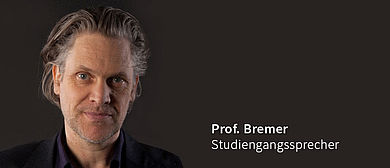Research
GAMES - SPIELSYSTEME - VR/AR
Digital games, interactive game systems, virtual reality and augmented reality are our research focus at HTW Berlin. At DE:HIVE, professors, research assistants and students conduct intensive research on content-related and technical-informatic fundamentals. In our spacious rooms and studios, the research team works, for example, on new game concepts (CT:GAMES), on optimising digital characters (f.GAZE). We conduct research in the field of skills development in the games industry (skillDAC), on the sustainability of learning in serious games (T.R.A.C.Y.) or on the use of game technologies in archaeology (MOSYS3D).
Centre of all play activities
HTW Berlin was an early adopter of digital games as an academic subject and now plays a pioneering role nationwide. The Game Design course was the first of its kind at a German state university and stands for teaching at an international level. The DE:HIVE Institute concentrates and coordinates all research projects at HTW Berlin in the areas of game systems, digital entertainment games, virtual reality, augmented reality, gamification, applied games and training systems with a playful character.
Theoretical and application-oriented focus
The research profile focuses on the areas of virtual reality, augmented reality, game system design, game studies, games for health, game technology and the transfer of methods and techniques of digital games to other areas of knowledge and application. In our interdisciplinary research projects, prototypes, virtual reality systems, applied games, software tools and method construction kits are developed and tested.
Productive cooperation with industry
We want to help make games even better. For this reason, we offer developers and studios interesting, individual opportunities for cooperation in research. One offer is, for example, the joint implementation of research projects within the framework of third-party funded projects. In addition, we enable active cooperation in studies and participation in or use of the study results.
Start of research activities in 2006
The HTW Berlin plays a pioneering role in research in the digital games segment throughout Germany. On the initiative of Prof. Thomas Bremer, the first externally funded projects focusing on games were carried out in 2006. This developed into the official competence field "Games & Interactive Media Research Group" in 2007. In 2008, Prof. Bremer established the specialisation "Game Technology & Interactive Systems" in the Master's programme in Media Informatics. Since 2009, the Bachelor's programme Game Design, conceived and directed by Prof. Bremer, has formed the centre of teaching and research for electronic games at HTW Berlin. At the same time, the field of competence was further developed into a research centre (formerly "GamesLab"). This was dissolved in 2012 and an application was made for a separate research cluster. In 2012, the academic senate of HTW Berlin appointed the research field of digital games as one of seven official research clusters. The institute is called DE:HIVE and operates several gamelabs, VR studios, sound studios, reseach labs and event spaces.

"The DE:HIVE concentrates and coordinates research projects at HTW Berlin in the areas of: Games, game systems, digital entertainment games, playable experiences, virtual reality, augmented reality, gamification, applied games as well as training systems with a playful character."
FACTS 2020
Cooperation partners (selection):
CHARITÉ Berlin,
FU Berlin,
Max-Planck-Institut für Bildungsforschung,
Stiftung Preussischer Kulturbesitz,
Universitätsklinik Eppendorf, Hamburg
Universität Trier,
Studios national et al.:
Exozet, Innogames, YAGER, WOOGA
Third-party funds acquired since 2006:
approx. 8 million euros
Funding through (selection):
Land Berlin
BMBF
IFAF
EU - EFRE
EU - ESF
Professor_innen:
Prof. Susanne Brandhorst
Prof. Thomas Bremer
Prof. Dr. David Strippgen
Mitarbeiter_innen:
Marlen Hähle
Julia Makheva
Arie Kai-Browne
Soeren Krahl
Sebastian Plesch
Friedrich Schadow
and student employees
